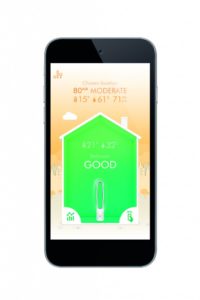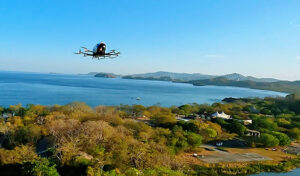Mayor doubles funding for tackling London’s air pollution
The Mayor of London, Sadiq Khan, has confirmed today (7 December) that the money allocated to tackling the capital’s air pollution will be more than doubled over the next five years.
As part of the draft Transport for London (TfL) Business Plan, to be published later this week, the Mayor has announced that £875m will be invested to improve London’s air quality until 2021/22, compared to the £425m committed by the previous mayor.
Each year, 9,400 deaths in London can be attributed to air pollution related illnesses, figures suggest. London does not meet legal requirements for nitrogen dioxide (NO2) and 474 of the capital’s schools are in areas where safe levels are being breached.  ‎
Today, Sadiq Khan said he wanted London to be a ‘world leader’ in tackling toxic air and challenged ministers to ‘prove they share my ambition.’
Programme
The Mayor is proposing a range of programmes including the introduction of an Ultra Low Emission Zone (ULEZ).
He is also currently seeking views on plans to introduce the ULEZ early, extending it to the North and South Circulars for all vehicles, and London-wide for lorries, coaches and buses potentially from 2019 (see AirQualityNews.com story).
The consultation also includes the Emissions Surcharge (dubbed the ‘T-Charge), which will remove older polluting vehicles from central London, which would involve £22m of direct investment.
Plans include the introduction of five Low Emission Neighbourhoods across eight boroughs, with the Mayor and TfL contributing £5m. In addition, the Mayor’s Air Quality Fund will continue to provide £9m for some of the worst pollution hotspots across London.
The full ULEZ package, including all associated measures such as rapid charging points, will see £610m of investment overall. As part of this investment, the Mayor has challenged TfL to act fast in greening its own fleet.
Transport
As part of TfL commitments, in the coming years at least 12 Low Emission Bus Zones will be implemented — the first two going live on Putney High Street in February next year, with the next one following in Brixton and Streatham in October 2017. Diesel-only buses will be phased out and only hybrid or zero-emission double decker buses will be purchased from 2018.
TfL has committed to meeting the ULEZ standards for double decker buses a year earlier than planned, meaning that the 3,100 double-decker buses operating in the zone will be Euro VI hybrid in 2019. All 300 single-decker buses operating in central London will be zero emission by 2020.
All new black cabs licenced after 1 January 2018 will have to be zero-emission capable with no new diesel taxis allowed. Financial support from a £65m fund will help decommission taxis more than 10 years old and encourage early adoption amongst the taxi trade.
Government
Alongside this programme, the Mayor is calling on the government to take immediate action on air pollution in London. He said: “With nearly 10,000 Londoners dying early every year due to air pollution, tackling poor air quality is a public health emergency that requires bold action.
He added: “In taking action such as setting up for the world’s first Ultra Low Emission Zone and purchasing only hybrid or zero-emission buses I’m ensuring that tackling air quality becomes a central part of how our transport network operates.
“London’s air quality continues to breach legal levels, which is why I have taken this unprecedented action. The onus is now on the Government to prove that they share my ambition. By funding a national diesel scrappage scheme and reforming vehicle excise duty the Government could also prove that they understand the enormity of our air quality emergency.”
The Mayor recently hit out against the Government’s decision to back a third runway expansion at Heathrow airport, claiming that it “will be devastating for air quality across London” (see AirQualityNews.com story).













